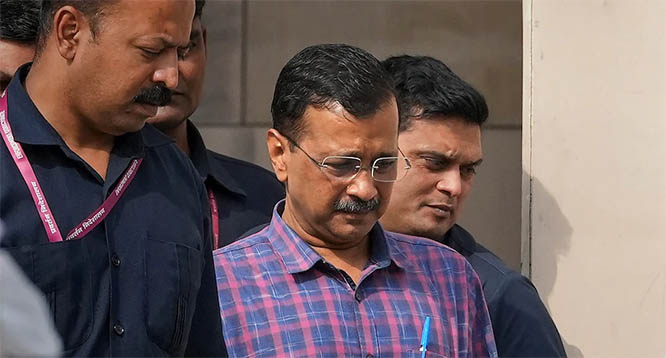Pratapgarh/Jaunpur, May 10: Stepping up her attack on Narendra Modi, Congress leader Priyanka Gandhi Vadra on Thursday said she had never seen "a more cowardly and weak" prime minister than him.
"I have not seen a more cowardly and weak prime minister than him (Modi) in my life," she told at an election meeting in Pratapgarh, a day after Modi fired yet another salvo targeting her father and former prime minister Rajiv Gandhi, accusing him of using warship INS Viraat as a "personal taxi" for a family holiday.
Priyanka claimed that Modi had failed to answer people's questions on his "unfulfilled" promises about generating two crore jobs and doubling farmers' income.
"The power of politics does not come from big campaigns and television shows. People are the biggest in democracy. One should have the power to listen and redress people's problems. He (Modi) should have the power to listen to the Opposition. Leave aside listening to you, this prime minister does know how to reply to you," she said.
"You have been cheated. He (Modi) had promised to check corruption, but now who has been exposed as corrupt?.... He hides the reality with his campaigns. If Modi comes to you, you should tell him that in Amethi, a lady got a Rs-35,000 electricity bill despite having no power connection, while another person showed a bill of Rs 50,000," the Congress general secretary in-charge of eastern Uttar Pradesh said.
She claimed that loans of big industrialists were waived, "but when (Congress chief) Rahul (Gandhi) asked for farm loan waiver, he was told there was no money".
Priyanka also claimed that farmers' insurance money was never paid to them and they were battling the stray cattle menace.
"If the prime minister is so powerful, he should say why he could not solve your problems. In every speech, he mentions Pakistan, but he should also tell you what his government has done and will do in the next five years. We are here due to you people and you have made us leaders. People are bigger, not us," she said.
The Congress leader alleged that when thousand of farmers from all over the country had gathered in Delhi and sought "a five-minute appointment from the prime minister, he did not give them time".
"In his (Modi's) constituency, Varanasi, in the last five years, he could not even spare five minutes to visit the people in the villages, ask them how they are and what are their problems," she said.
Polling for the ongoing Lok Sabha election will be held in 14 seats of Uttar Pradesh, including Pratapgarh and Jaunpur, in the sixth phase on 12 May and the results will be announced on 23 May.
The war of words between the ruling Bharatiya Janata Party (BJP) and the Congress has turned shriller with Modi raising the issue of alleged corruption during the tenure of Rajiv Gandhi as prime minister, saying his life had ended as "bhrashtachari number 1" (corrupt number one).
At a rally in Delhi on Wednesday, Modi said, "INS Viraat was insulted by using it as a personal taxi. This happened when Rajiv Gandhi and his family was out for a 10-day vacation."
The Congress hit back, accusing Modi of spreading lies about its late leader, who was the prime minister over 30 years ago, as he could see his "imminent defeat" in the ongoing polls.
Later, addressing a rally at Jaunpur, Priyanka alleged that under the current BJP-led government, those who asked for their rights were termed as "traitors".
"The prime minister has not uttered a word on the SC/ST Act. At Amethi, BJP men beat up two persons to prevent them from casting their votes. The prime minister does not have the courage to talk about your problems," she said at Badlapur, about 40 kilometres from the Jaunpur district headquarters.
The Congress leader said political power came from hearing the grievances of the public and redressing them, listening to criticism and also from lending an ear to rival parties.
"But this prime minister neither listens nor gives answers to your problems," she said, adding that the people of the country were deceived by the Modi government.
Priyanka wrapped up her day-long visit with a roadshow in Sultanpur, where people lined up on both sides of the road and perched atop rooftops and trees to catch a glimpse of her.
She was garlanded by Congress workers and supporters who put up welcome arches all along the three-km route of her roadshow and shouted slogans welcoming her.








Comments
Add new comment